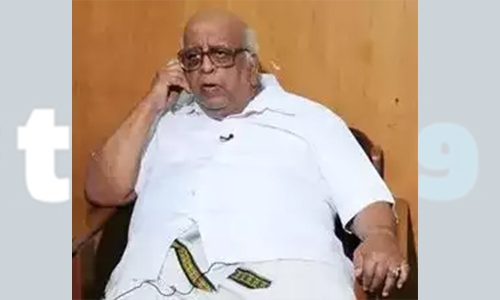India’s most impactful election commissioner TN Seshan dies at 87
Tirunellai Narayana Iyer (TN ) Seshan, former Chief Election Commissioner and the man responsible for ushering in electoral reforms passed away today. He was 87 years old. TN Seshan was the 10th Chief Election Commissioner and had served form December 12, 1990, till December 11, 1996.
He was popularly known for enforcing Model Code of Conduct. Seshan also waged war against the tendency of politicians to flout the model code of conduct, which they were supposed to abide by. Polling was suspended in a Madhya Pradesh constituency as a serving governor campaigned for his son, ultimately leading to his resignation.
In Uttar Pradesh, a minister was forced to quit the dais at a rally as the campaign period had just ended. Born as Tirunellai Narayana Iyer Seshan on December 15, 1932 in Thirunellai, Palakkad district, Kerala, TN Seshan was widely known and remembered for his electoral reforms. He was the Chief Election Commissioner of India from 1990 to 1996 and played a major role in drastically ending electoral malpractices in the country.
A 1955-batch IAS officer, he served in various capacities before he was appointed as Secretary of Defence in 1988 when Rajiv Gandhi was Prime Minister. It was during his tenure that he helped defend the Bofors scam. Thereafter, he was promoted to cabinet secretary, the highest position a civil servan can get, a year later in 1989. However, when VP Singh came to power, Seshan was sent to the Planning Commission.
TN Seshan was appointed the 10th Chief Election Commissioner by President Venkataraman in December 1990. In the next six years, he changed the face of the Commission. It was Seshan who brought in the change, demolishing walls of resistance. Seshan went ahead and appointed special election observers in all states.
These observers would watch the election process and ‘check for incendiary campaign speeches, voter intimidation, vote-stealing and other tactics often associated with electoral violence’. He had also won the Ramon Magsaysay Award for his services to the government in 1996.
Related Posts

